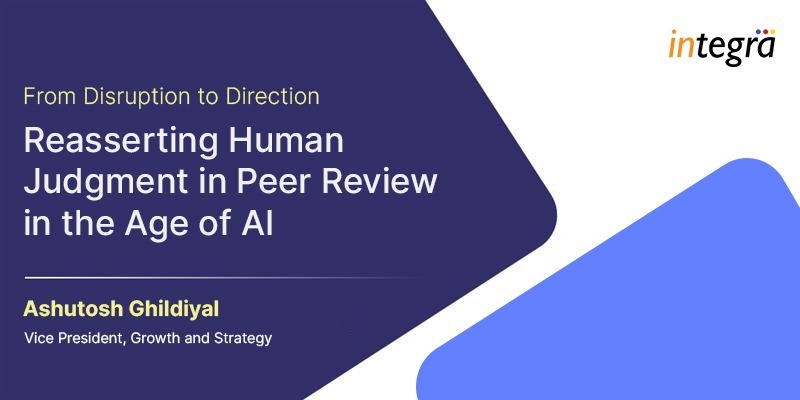AI in Action: Unleashing New Business Potentials for the Digital Age

The landscape of business and technology has been revolutionized by the rapid evolution of Artificial Intelligence (AI). Once a futuristic concept, AI now permeates various business sectors, transforming operational processes and customer interactions. This shift marks a pivotal moment in technological history, where AI’s capabilities are no longer just theoretical but are actively reshaping our world. Global AI investment surged from $12.75 million in 2015 to $93.5 billion in 2021, and the market is projected to reach $422.37 billion by 2028. Already over $2B has been invested in Generative AI, up 425% since 2020, according to the Financial Times.
The Rise of AI in Business
The journey of AI in the business world began as a nascent technology, often reserved for theoretical research. In the 1950s, the emergence of neural networks and the coining of ‘artificial intelligence’ and ‘machine learning’ set the stage. The 1960s introduced Eliza, an early chatbot, and Shakey, the first mobile intelligent robot. An ‘AI winter’ in the 1970s and 1980s preceded a resurgence of interest and innovation. The 1990s focused on speech and video processing advancements. The 2000s witnessed the rise of technologies like IBM Watson, personal assistants, facial recognition, deepfakes, autonomous vehicles, and advanced content creation, further cementing AI’s role in transforming business. It is swiftly transitioning into a practical tool, reshaping business models and industry standards.
Today, Artificial Intelligence Solutions are ubiquitous across industries. From healthcare to finance, AI technologies are used to enhance operational efficiency, customer engagement, and decision-making processes. We will delve into specific instances where AI is making significant impacts across diverse sectors.
Key AI Technologies Revolutionizing Business Operations
Machine Learning and Data Analytics
Machine learning and data analytics stand at the forefront of AI technologies in business. These tools enable companies to harness vast amounts of data for predictive analytics, customer behavior analysis, and more, leading to more targeted strategies and efficient operations. A recent study by Verta Insights, reveals a significant trend: over two-thirds of machine learning practitioners anticipate a substantial increase in real-time use cases in the next three years. This shift poses a challenge for businesses whose machine learning technology stacks are primarily designed for analytical or batch workloads. Such systems may struggle to adapt to the demands of operationalizing real-time use cases at scale, particularly in customer-facing applications. The ability to forecast market trends, understand customer behavior, and preemptively identify risks is crucial in this rapidly evolving landscape. Businesses must, therefore, pivot towards more dynamic, real-time predictive analytics that can seamlessly integrate into their operational frameworks to maintain a competitive edge.
Natural Language Processing (NLP)
The evolution of Natural Language Processing (NLP) has brought about a significant transformation in various sectors, including publishing. Today’s NLP systems are equipped to understand, interpret, and even generate human language with an impressive level of sophistication. This advancement is particularly beneficial for publishers, as NLP can be integrated into AI-based publishing workflow management software like ContentPilot.
Robotic Process Automation (RPA)
RPA now incorporates cognitive abilities, allowing for more complex and intelligent automation. These systems can handle unstructured data, adapt to new situations, and make decisions based on real-time data, streamlining operations and reducing human error.
AI in Cybersecurity
AI’s role in cybersecurity is crucial, especially as enterprises confront the challenge of securing immense data volumes. Forbes reports that 76% of enterprises have included AI and machine learning in their IT budgets, driven by the need to analyze vast data amounts for cyber threat detection. With connected devices expected to generate 79 zettabytes of data by 2025, manual analysis becomes impractical.
Reflecting this urgency, Blackberry’s research indicates that 82% of IT decision-makers plan to invest in AI-driven cybersecurity within the next two years, with 48% aiming to do so before the end of 2023. This strategic pivot towards AI in cybersecurity underscores its efficiency in analyzing large datasets, identifying threat patterns, and enhancing overall cybersecurity measures.
Benefits of AI for Businesses
Enhanced Efficiency and Productivity
AI’s ability to automate and optimize routine tasks is a major boon for businesses, resulting in enhanced efficiency and productivity. This section will explore specific examples of AI-driven automation in various industries.
Improved Decision Making
AI-driven data analysis empowers businesses with insights that lead to more informed and strategic decision-making. We’ll discuss how this analytical power is reshaping business strategies.
Customization and Personalization
AI’s role in enabling personalized marketing and customer experiences is transforming the landscape of customer engagement. We’ll examine how AI-driven personalization is becoming a key differentiator in competitive markets.
Scalability and Innovation
The scalability and innovation driven by AI are pivotal for businesses looking to grow and adapt in the rapidly evolving digital world. This section will explore how AI solutions aid businesses in scaling operations and fostering innovation.
Challenges and Ethical Considerations
Addressing AI Bias
The challenge of AI bias and the importance of ethical AI implementation cannot be overstated. We will discuss strategies to mitigate biases and ensure fair and ethical AI practices.
Privacy and Data Security
With AI’s deep integration into business processes, concerns around data privacy are paramount. This section will highlight the solutions and best practices for ensuring data security in AI applications.
Cost and Implementation Challenges
Implementing AI can be particularly challenging for smaller businesses. We will outline the potential hurdles and provide insights on overcoming these challenges for successful AI adoption.
Preparing for an AI-Driven Future
Building an AI-Ready Workforce
As AI technologies evolve, the need for skills development and AI-focused training becomes crucial. This section will discuss strategies for building an AI-ready workforce.
Strategic Planning for AI Integration
Creating a roadmap for AI implementation is vital for businesses looking to leverage AI effectively. We will offer insights and tips for strategic planning and successful AI integration.
Staying Ahead of the Curve
Keeping abreast of AI advancements and future trends is essential for businesses looking to maintain a competitive edge. We will provide tips and strategies for staying ahead in the rapidly evolving AI landscape.
Artificial Intelligence Solutions are not just a component of the digital era; they are shaping its very foundation. By understanding and strategically implementing AI, businesses can unlock unprecedented opportunities for growth, efficiency, and innovation. As we continue to navigate this AI-driven landscape, it’s crucial to stay informed, agile, and ready to adapt to the ever-evolving technological advancements.
Recent Blogs

Why LaTeX Still Matters in Scholarly Publishing—and How the Right Partner Makes All the Difference

Print, Pedagogy, and AI: The New Architecture of Educational Publishing


